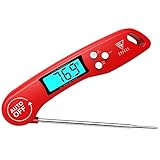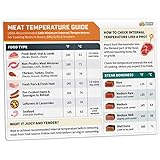
Preserving your Thanksgiving centerpiece is crucial to ensure a safe and delicious meal for your loved ones. With all eyes on the turkey during the holiday feast, it’s important to understand how to properly handle and store this iconic bird. While we often focus on the cooking process, it’s equally essential to know how much time your turkey can safely remain at room temperature before it spoils.
Ensuring food safety guidelines is vital in maintaining the turkey’s quality and preventing any unpleasant surprises during your festive gathering. Although most people keep their turkey out to cool or thaw, it’s crucial to be mindful of the potential risks of leaving poultry unrefrigerated for too long. The longer your turkey sits out, the more it becomes a breeding ground for bacteria, resulting in possible foodborne illnesses.
Understanding the threshold for turkey storage is essential to determine the ideal time frame for safe consumption. Maintaining the freshness of your turkey lies in the balance between its time outside the refrigerator and the ambient temperature in your kitchen. By following proper guidelines and taking necessary precautions, you can safeguard your turkey from spoilage and enjoy a delicious and healthy meal with peace of mind.
Guidelines for the Safe Duration of Turkey Storage
The time duration for which a turkey can be safely stored at room temperature is an important concern for food safety. Understanding the optimal timeframe for turkey storage is crucial to prevent spoilage and potential foodborne illnesses. This article provides essential guidelines to assist in determining how long a turkey can be kept out before it spoils, ensuring the safety and quality of your meal.
Understanding the Shelf Life of a Cooked Turkey at Room Temperature
In this section, we will explore the recommended time limit for leaving a cooked turkey at room temperature. It is crucial to understand the factors that determine the safety of consuming a turkey left out at room temperature, without explicitly mentioning specific definitions.
Preserving Food Safety
Ensuring the safety of cooked turkey rests on various elements, such as temperature, time, and foodborne bacteria. Although it is tempting to keep leftovers out for convenience, it is vital to adhere to proper food handling guidelines to prevent food poisoning.
The “Two-Hour Rule”
Experts emphasize the significance of the “two-hour rule,” which states that perishable foods, including cooked turkey, should not be left at room temperature for more than two hours. This rule takes into account the growth of harmful bacteria that thrive and multiply rapidly at temperatures between 40°F (4°C) and 140°F (60°C). Exceeding this time limit significantly increases the risk of foodborne illnesses.
Temperature Danger Zone: The temperature danger zone falls within the range of 40°F (4°C) to 140°F (60°C), where bacteria multiply most rapidly.
It is essential to note that the two-hour rule applies in moderate room temperature conditions, typically around 68°F (20°C). Higher room temperatures would further decrease the recommended time limit to avoid bacteria growth.
Proper Storage: To prolong the shelf life of cooked turkey, it is recommended to promptly refrigerate or freeze it within the two-hour window. This precautionary measure inhibits bacterial growth and preserves the turkey’s quality and taste for a longer period.
Factors Affecting the Durability of a Turkey Left Unrefrigerated
Various elements can impact the period for which a turkey can remain unrefrigerated without spoiling. Understanding these factors is crucial to ensuring food safety and avoiding the risk of foodborne illnesses.
| Factors | Description |
|---|---|
| Temperature | The ambient temperature where the turkey is left plays a significant role in its shelf life. Warmer temperatures accelerate bacterial growth, increasing the risk of spoilage. On the other hand, cooler temperatures slow down bacterial activity, lengthening the lifespan of the turkey. |
| Time | The duration for which the turkey is left unrefrigerated greatly impacts its safety for consumption. The longer it remains outside proper storage conditions, the greater the chances of bacterial multiplication, leading to potential spoilage. |
| Exposure | The exposure of the turkey to air, moisture, and other contaminants can hasten spoilage. If the turkey is left uncovered or in an unsanitary environment, it becomes more susceptible to bacterial contamination, thereby reducing its shelf life. |
| Quality and Freshness | The initial quality and freshness of the turkey determine how long it can safely be left unrefrigerated. A turkey that was already close to its expiration date or had been mishandled before cooking will have a shorter lifespan outside refrigeration. |
| Preparation and Cooking | The way the turkey is prepared and cooked can indirectly affect its durability when left unrefrigerated. Proper sanitation practices, thorough cooking to recommended internal temperatures, and ensuring leftovers are promptly refrigerated all play a role in maintaining the turkey’s safety and extending its shelf life outside refrigeration. |
By considering these factors, individuals can make informed decisions regarding the consumption of turkey left unrefrigerated, minimizing the risk of foodborne illnesses and maximizing food safety.
Ensuring Food Safety: Recommendations to Minimize Spoilage and Prevent Foodborne Illnesses
Proper food storage and handling are crucial in maintaining food safety and minimizing the risk of spoilage and foodborne illnesses. By implementing the following recommendations, individuals can ensure that the food they consume is of high quality and safe for consumption.
1. Adequate Refrigeration
Adequate refrigeration plays a vital role in preventing the growth of harmful bacteria and preserving the freshness of perishable foods. It is essential to keep the temperature of the refrigerator below 40°F (4°C) to slow down bacterial growth effectively. Regularly check the refrigerator’s temperature using a thermometer to ensure it is within the safe range.
2. Proper Food Handling and Storage
When handling food, it is crucial to maintain good hygiene practices to prevent cross-contamination and the spread of bacteria. Wash hands thoroughly with soap and warm water before and after handling food. Additionally, separate raw foods, such as poultry, from ready-to-eat foods to prevent the transfer of harmful bacteria.
Furthermore, storing perishable foods properly is vital in maintaining their freshness and quality. Use airtight containers or plastic wrap to seal food items and prevent the growth of bacteria. Additionally, ensure that foods are stored in the correct areas of the refrigerator to maintain optimal temperatures.
By incorporating these recommendations into daily food practices, individuals can significantly reduce the risk of spoilage and foodborne illnesses. It is important to prioritize food safety to safeguard the health of ourselves and our loved ones.








